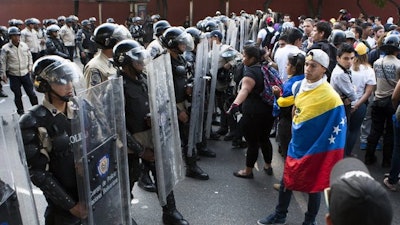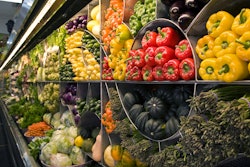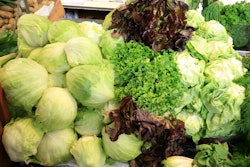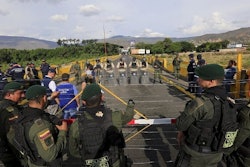
Hours after they looted and set fire to a National Guard command post in this sun-baked corner of Venezuela earlier this month, a mob infuriated by worsening food shortages rammed trucks into the smoldering edifice, reducing it mostly to rubble, according to The Wall Street Journal.
The incident was just one of numerous violent clashes that have flared in pockets around the country in recent weeks as Venezuelans wait for hours in long supermarket lines for basics like milk and rice. Shortages have made hunger a palpable concern for many Wayuu Indians who live here at the northern tip of Venezuela’s 1,300-mile border with Colombia.
The soldiers had been deployed to stem rampant food smuggling and price speculation, which President Nicolás Maduro blames for triple-digit inflation and scarcity. But after they seize contraband goods, the troops themselves often become targets of increasingly desperate people.
In a national survey, the pollster Consultores 21 found 30 percent of Venezuelans eating two or fewer meals a day during the second quarter of this year, up from 20 percent in the first quarter. Around 70 percent of people in the study also said they had stopped buying some basic food item because it had become unavailable or too expensive.
Editors Insight: The violence in Venezuela demonstrates that globalization has many implications for the food supply chain, some being very destructive. Like it or not, food supply chain service providers are part of a global economy, so conditions in different parts of the world will impact their business.
The decline in oil prices has benefited the global food supply chain – lower fuel costs reduce operating costs, giving transportation and logistics providers more budgetary flexibility. But the oil price decline also undermined the Venezuelan economy, creating its current food shortage. In the past decade, the Venezuelan government used oil profits to subsidize consumer goods, including food. The recent drop in oil prices decimated the country’s finances, leading to the current food shortage.
Food supply chain businesses and other businesses have little control over most government activity. Nonetheless, government actions impact business.
Because we are living in a global economy, supply chain providers have to pay attention to global developments. Businesses also have to be involved in the political arena if they want to look out for their best interests. 8-27-15 By Elliot Maras

















